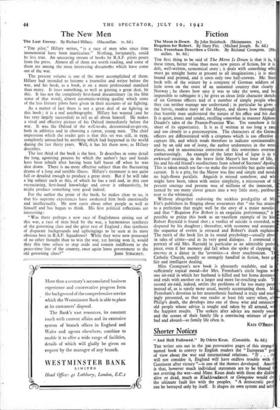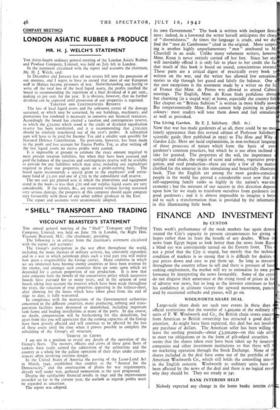Shorter Notices
• And Hell Followed." By Odette Kelm. (Constable. 8s. 6d.)
THE writer sets out in the 30o provocative pages of this strange named book to convey to English readers the "European" of view about the war and international relations. "If . . . th will not consider it England will have endless trouble with Continent after victory "—is one of the themes developed. Ano is that, however much individual statesmen are to be blamed not averting the war—and Mme. Keun deals with those she dish alive or dead, much as Kladderadatsch or Gringoire would d the ultimate fault lies with the peoples. " A democratic
can be betrayed only by itself. It shapes its own system and se its own Government." The book is written with inelegant fierc ness: indeed, in a foreword the writer herself anticipates the charg of " shrewishness." At times the language is crude, and we du find the " mot de Cambronne " cited in the original. More surpri ing is another highly unparliamentary " mot " attributed to Churchill in an aside. Unlike many vehement writers, howeve Mme. Keun is never entirely carried off her feet. Since her sty will inevitably offend it is only fair to place to her credit the fa that much of this book is based on sound, conscientious researc Those parts are a critical digest of practically every book y written on the war, and the writer has allowed few sensation stories to slip through her guard and falsify the balance. One the rare exceptions is the statement made by a writer on the f of France that Mme. de Portes was allowed to attend Cabin meetings. The English, Mme. de Keun finds perfidious abro but charming (in a stupid way) at home, especially the country fo Her chapter on " Britain Subsists " is written in more kindly m But temperamentally Mme. Keun cannot help painting in glari colours : most readers will tone them down and feel stimulat as well as provoked.



























 Previous page
Previous page